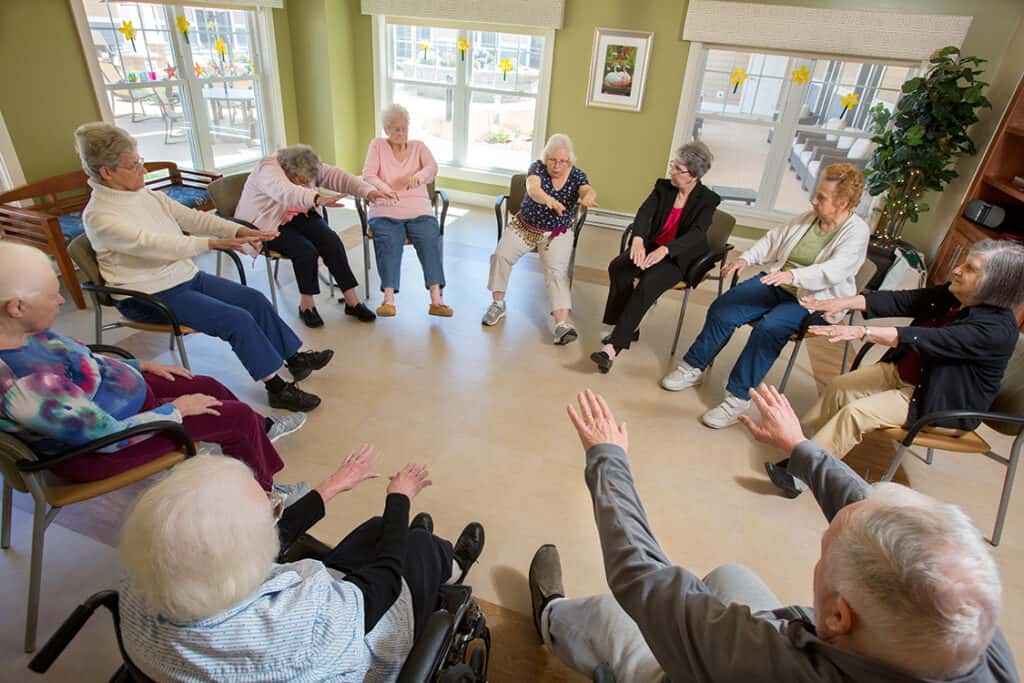The Duty of Assisted Staying In Giving Specialized Look After Mental Deterioration Clients
The arrangement of specialized care for mental deterioration clients within assisted living facilities is progressively acknowledged as an important element of efficient dementia administration. These settings are made to address the unique cognitive and emotional difficulties encountered by people with mental deterioration, using tailored support that advertises safety and security and wellness.
Recognizing Mental Deterioration Care Needs
Understanding the care requirements of individuals with dementia is vital for giving efficient support and boosting their lifestyle. Dementia is a modern neurological problem that impacts cognitive features such as memory, reasoning, and interaction. Consequently, people with dementia commonly require help with daily activities, personalized treatment strategies, and emotional assistance.
Effective mental deterioration treatment involves acknowledging the one-of-a-kind challenges dealt with by each person. This consists of comprehending the stages of dementia, which can range from moderate cognitive problems to advanced stages needing thorough aid. Care needs may include assistance in managing everyday regimens, drug adherence, and keeping social interactions to stop seclusion.
In addition, sensory excitement and acquainted environments can dramatically boost the health of people with mental deterioration. Caregivers should be educated to determine behavior adjustments and use strategies tailored to each person's preferences and previous experiences. Techniques such as validation treatment and reminiscence can help communicate efficiently and promote a sense of protection.
Inevitably, efficiently addressing the treatment needs of people with mental deterioration needs a thoughtful strategy, recurring training for caretakers, and a commitment to preserving self-respect and regard throughout the caregiving procedure.
Advantages of Assisted Living

Assisted living advertises social interaction among homeowners, fostering a feeling of area and belonging. Engaging with peers can minimize sensations of seclusion, which are common in those living with dementia.
On top of that, several nursing home use support with day-to-day tasks, such as medication monitoring, bathing, and dish prep work. This assistance allows homeowners to maintain their self-reliance while guaranteeing their wellness and well-being are prioritized. Eventually, assisted living offers as a beneficial source, balancing care and freedom for people with mental deterioration and their families.

Specialized Programs and Activities
In addition, art and music treatment play substantial functions in fostering creative thinking and psychological expression (Assisted Living). Involving locals in paint, crafting, or music sessions can provide healing benefits, aiding to minimize anxiety and improve state of mind. Physical activities, such as mild browse around these guys exercises and dancing sessions, are likewise crucial, as they advertise wheelchair and physical health while urging social interaction amongst citizens
Organized day-to-day routines are usually established to give a sense of security and predictability for people with dementia. These regimens can consist of arranged dish times, group activities, and individualized care plans that accommodate individual passions and abilities. By producing an improving environment full of customized activities, helped living centers not only improve the top quality of life for dementia individuals yet also promote a feeling of community and belonging.
Educated Team and Support
Moreover, trained personnel are equipped to carry out personalized treatment strategies tailored to every homeowner's preferences and capacities. This individualized strategy fosters a sense of freedom and self-respect, allowing citizens to engage in significant tasks that enhance their high quality of life. The team additionally play an important duty in keeping an eye on wellness and health, without delay identifying any type of adjustments in condition that may call for clinical focus.
Along with route care, qualified personnel supply psychological support to citizens, assisting to ease sensations of complication and stress and anxiety that usually come with mental deterioration. Their thoughtful strategy develops a caring atmosphere where citizens feel valued and understood - Assisted Living. Inevitably, the knowledge and dedication of trained staff are important in delivering comprehensive treatment that fulfills the intricate demands of people coping with mental deterioration in assisted living settings
Family Participation and Resources
Family members participation plays a considerable function in the treatment of individuals with mental deterioration in nursing home. Involving relative in the care process not just improves the psychological health of the citizen but additionally promotes a collaborative setting where care strategies can be customized to individual demands. Households can provide beneficial insights into the choices, history, and actions of their liked ones, which can inform caretakers and result in even more individualized care approaches.
Moreover, helped living facilities often use resources for families, such as assistance groups and instructional workshops. These resources can aid households understand mental deterioration, enhance interaction techniques, and establish coping mechanisms. Participation in these programs can empower household members, equipping them with the devices required to support their liked ones efficiently.
In addition, routine communication in between households and team is critical. This continuous discussion enables family members to stay notified concerning their liked one's progress and any kind of changes in treatment strategies. Ultimately, a strong collaboration in between families and helped living centers cultivates an environment of depend on and understanding, ensuring that individuals with dementia obtain the specialized treatment they deserve while preserving their family members links.
Conclusion
In final thought, aided living facilities play a vital function in resolving the distinct requirements of mental deterioration patients through personalized care and assistance. By fostering safe settings, advertising social communication, and implementing structured routines, these facilities enhance the overall well-being of locals. The involvement of trained team and households better improves the treatment experience, making sure that private preferences and histories are respected. Inevitably, assisted living gives crucial sources that dramatically enhance the lifestyle for those dealing with dementia.
Comments on “Explore budget-friendly Assisted Living options for seniors needing support.”